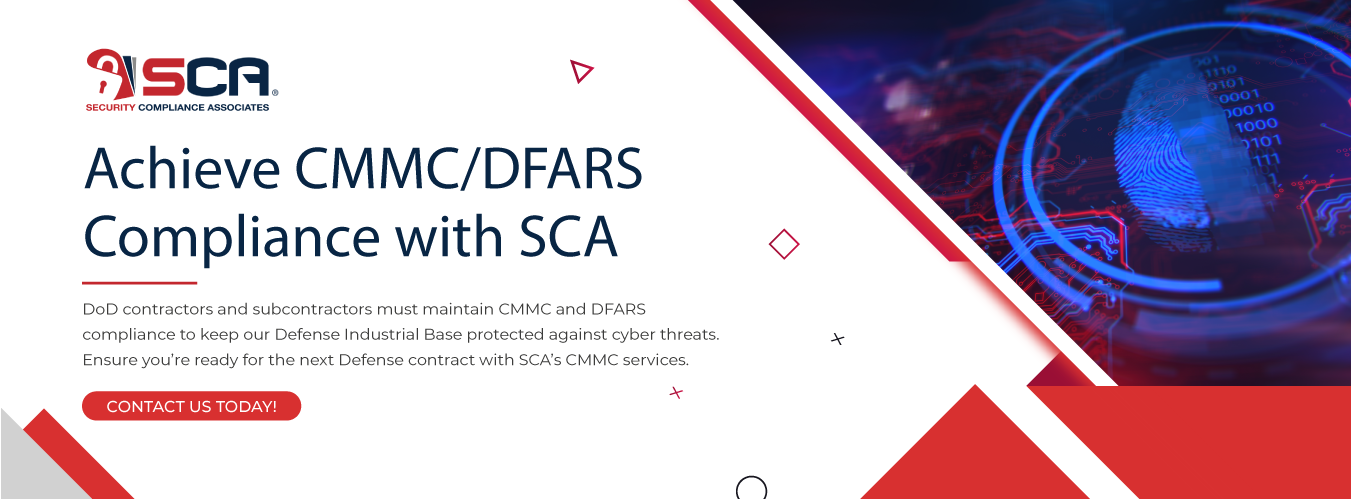
- November 15, 2023
- SCA Editor
- 538 Views
- 0 Likes
- Blog, Compliance
Mandatory Disclosure: Breaking Down the False Claims Act
The False Claims Act (FCA) is a federal statute that sets criminal and civil penalties for falsely billing the government, over-representing the amount of a delivered product, or understating an obligation to the government. The False Claims Act may be enforced either by the Justice Department or by private individuals in a qui tam proceeding. In this article, we unwrap what the act entails and how contractors can ensure compliance.
Learn How SCA Helps Contractors Working in the Public Sector
What is the False Claims Act?
The False Claims Act permits private individuals to initiate qui tam actions, accusing defendants of defrauding the federal government (refer to 18 U.S.C. § 286, 18 U.S.C. § 287, 31 U.S.C. § 3729 et seq.). Should the lawsuit prove successful, the initiating private party will receive a portion, potentially up to 30%, of the government’s award. In these legal actions, the government is the primary party of interest, assuming the role of the plaintiff. In terms of mandatory disclosure, the individual triggering the lawsuit is specifically known as a relator.
The False Claims Act, colloquially known as “Lincoln’s Law,” originated during the Civil War in response to rampant fraud perpetrated by contractors and suppliers against the Union Army. Concerns arose as these entities supplied subpar items like moth-eaten blankets and boxes of sawdust instead of promised weaponry. President Lincoln urged Congress to address this issue, leading to the Act’s passage in 1863.
Presently, the Act primarily targets individuals and entities seeking payment or reimbursement from the government, significantly impacting healthcare providers and government contractors. The Act comes into play when these entities submit “false claims” for government payment, reflecting its crucial role in maintaining integrity within financial transactions with the government.
The False Claims Act (FCA) substantially impacts government contractors, serving as a powerful tool to deter and address fraudulent activities in their dealings with federal agencies through mandatory disclosure. Government contractors can face severe legal consequences if found in violation of the FCA. This includes civil and criminal penalties, fines, and potential exclusion from future government contracts. The Act encourages compliance by holding contractors accountable for submitting accurate and truthful claims to the government.
The Role of Mandatory Disclosure
Government contractors are obligated to disclose any potential violations of the FCA. Failure to make mandatory disclosures can lead to increased penalties if misconduct is later discovered. Navigating the disclosure process effectively is crucial for contractors to mitigate damages and maintain their standing with government agencies.
Mandatory disclosure covers a broad range of potential violations, including but not limited to false claims, false statements, and overcharging for goods or services. Contractors must be vigilant in identifying any irregularities that could be indicative of fraudulent activities.
Government contractors are obligated to report any potential violations of the FCA as soon as they become aware of them. This timely reporting is essential for facilitating prompt investigations and mitigating the potential impact of the violation.
Common Scenarios Requiring Mandatory Disclosure
Many government contracts integrate cybersecurity clauses aimed at ensuring compliance with the False Claims Act. Contractors are obligated to observe these clauses, instituting internal controls and cybersecurity programs to guarantee that their business practices align with the FCA’s cybersecurity requirements. Failure to fulfill these cybersecurity-related contractual obligations may result in breach of contract claims.
The FCA emphasizes the pivotal role of robust cybersecurity and mandatory disclosure compliance programs for government contractors. The implementation of effective cybersecurity risk management strategies and best practices, such as routine internal cybersecurity audits, training programs, and fostering a cybersecurity-centric culture of integrity, enables contractors to sidestep inadvertent cybersecurity violations and adeptly navigate the intricacies of government contracts.
Upon making a mandatory cybersecurity disclosure, government agencies may initiate cybersecurity investigations to evaluate the validity and scope of the reported cybersecurity violations. Contractor cooperation with these cybersecurity investigations is paramount, and a failure to do so can lead to heightened cybersecurity penalties.
Navigating the Disclosure Process
Under the False Claims Act (FCA), the disclosure process is a structured mechanism through which government contractors must report any credible evidence of fraudulent activities related to their contracts with federal agencies. When a contractor becomes aware of a potential violation, it is obligated to initiate the disclosure process promptly.
This typically involves the contractor conducting an internal investigation to gather relevant information and assess the nature and scope of the potential violation. Once the evidence is gathered, the contractor is required to report the findings to the appropriate government agency, detailing the specifics of the alleged fraud and providing any supporting documentation.
The government agency may initiate an investigation to validate the reported information upon receiving the mandatory disclosure. The agency will assess the credibility of the allegations, determine the extent of any financial loss to the government, and evaluate the contractor’s cooperation throughout the process. The mandatory disclosure process emphasizes the importance of transparency and collaboration between government contractors and agencies, aiming to identify and rectify instances of fraud while ensuring that contractors remain accountable for their actions. Contractors who actively engage in the disclosure process, cooperate with investigations, and implement corrective measures may mitigate potential penalties and demonstrate a commitment to ethical business practices.
Understanding CMMC Compliance: What You Should Know
So, how should contractors approach mandatory disclosure, especially in the realm of cybersecurity? Here are some recommended cybersecurity best practices to ensure compliance and mitigate the risk of fines, as advised by Security Compliance Associates (SCA):
Implement Comprehensive Cybersecurity Assessment Programs: Government contractors must establish and maintain robust cybersecurity assessment programs, incorporating clear policies and procedures aligned with the False Claims Act (FCA) requirements. Regular employee training sessions on ethical conduct, FCA regulations, and the importance of accurate billing and reporting can instill a culture of compliance within the organization.
Conduct Routine Internal Audits with a Cybersecurity Focus: Regular internal audits are crucial for identifying and addressing potential cybersecurity issues before they escalate. Contractors should consistently review their financial and billing practices to ensure accuracy and compliance with FCA regulations. These audits not only aid in the early detection of discrepancies but also showcase a proactive commitment to cybersecurity compliance.
Establish a Whistleblower Hotline with a Cybersecurity Emphasis: Encouraging employees to internally report cybersecurity concerns is a proactive measure to identify potential FCA violations. Instituting a confidential whistleblower hotline allows employees to report irregularities or suspected fraudulent activities related to cybersecurity without fear of retaliation, creating an internal mechanism for addressing cybersecurity issues before they become legal liabilities.
Maintain Open Communication with Government Agencies, Emphasizing Cybersecurity: Establishing open lines of communication with government agencies is essential for effective cybersecurity compliance. Contractors should engage in regular dialogue with relevant agencies, seeking guidance on cybersecurity matters and staying informed about any regulation changes. This proactive communication can help build a collaborative relationship and demonstrate a commitment to transparency in cybersecurity practices.
Stay Informed About Cybersecurity Amendments and Updates, Especially in FCA Context: The cybersecurity landscape, particularly within the context of the False Claims Act, is subject to amendments and updates. Contractors must stay informed about changes to cybersecurity regulations to ensure ongoing compliance. This includes understanding recent court decisions, legislative updates, and interpretations of the law. Staying abreast of these changes allows contractors to adjust their cybersecurity programs accordingly and maintain a proactive stance against potential cybersecurity violations.
By adopting these cybersecurity best practices, government contractors can not only navigate the complexities of the False Claims Act but also demonstrate a commitment to ethical business practices, transparency, and cooperation with government agencies, particularly in the realm of cybersecurity.
Contact Us to Build Your Cybersecurity Strategy Now
Recognizing that cybersecurity is a critical aspect of information transparency and privacy, especially in specific industries like Department of Defense contractors and subcontractors, healthcare, finance, and education, government contractors must adhere to specific controls and protocols. Failure to do so and the failure to disclose any noncompliance could lead to a breach of mandatory disclosure guidelines.
The government continues to leverage the False Claims Act against organizations with lax security controls and reviews. Any cybersecurity breach can have serious and expensive consequences both financially and for an organization’s ability to bid on future contracts. Leveraging Security Compliance Associates’ extensive experience and knowledge can help develop a custom cybersecurity plan, ensuring complete alignment with contractual obligations and requirements.
SCA can serve as a resource to help keep your organization on the right side of FCA with regular cybersecurity compliance checks, testing, and training for your team.


